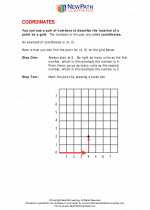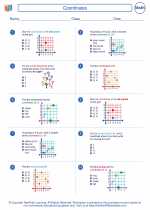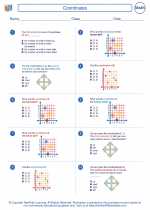Definition:
A divisor is a number that divides another number evenly without leaving a remainder. In other words, if you divide a number by its divisor, the result is a whole number.
Example:
Let's consider the number 12. The divisors of 12 are 1, 2, 3, 4, 6, and 12 because when 12 is divided by these numbers, the result is a whole number.
Study Guide:
- Identify the number: Start by choosing a number for which you want to find the divisors. Let's use the number 20 as an example.
- List the factors: List all the possible factors of the number. Factors are the numbers that can be multiplied together to get the original number. For 20, the factors are 1, 2, 4, 5, 10, and 20.
- Identify the divisors: From the list of factors, identify the numbers that divide the original number without leaving a remainder. In this case, the divisors of 20 are 1, 2, 4, 5, 10, and 20.
- Understanding divisibility rules: It's also helpful to understand the rules for divisibility, such as the rules for dividing by 2, 3, 5, 9, and 10. These rules can make it easier to identify divisors.
Remember, a number always has at least two divisors: 1 and the number itself. The study guide can help you identify all the divisors of a given number.
[Divisor] Related Worksheets and Study Guides:
.◂Math Worksheets and Study Guides Fourth Grade. Coordinates
Study Guide Coordinates
Coordinates  Worksheet/Answer key
Worksheet/Answer key Coordinates
Coordinates  Worksheet/Answer key
Worksheet/Answer key Coordinates
Coordinates  Worksheet/Answer key
Worksheet/Answer key Coordinates
Coordinates 

 Worksheet/Answer key
Worksheet/Answer key
 Worksheet/Answer key
Worksheet/Answer key
 Worksheet/Answer key
Worksheet/Answer key

The resources above cover the following skills:
Geometry (NCTM)
Specify locations and describe spatial relationships using coordinate geometry and other representational systems.
Describe location and movement using common language and geometric vocabulary.
Make and use coordinate systems to specify locations and to describe paths.